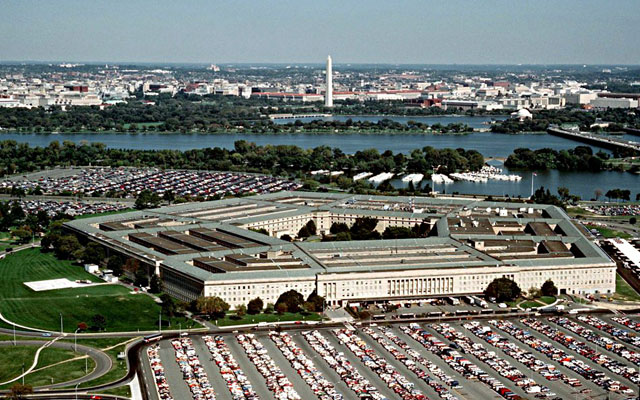Defense Budget Cuts Troubling in a Dangerous World
Michaela Dodge /
Cuts in President Obama’s fiscal year 2014 defense budget submission are troubling, according to Mike Rogers (R–AL), Chairman of the Strategic Forces Subcommittee, House Armed Services Committee. While the President proposes to reduce the defense budget by about $120 billion in the next 10 years, the world is not getting any safer.
North Korea recently threatened targets in the United States with nuclear annihilation, including Washington and San Francisco. It conducted its third nuclear weapon device test in defiance of international law in February. Iran continues to support terrorists attacking U.S. forces throughout the Middle East. Syria has been plagued by a civil war and the Assad regime crossed the President’s red line when it reportedly used chemical weapons on its civilians.
Such a dangerous world warrants strong U.S. involvement. Any of these situations can get out of control quickly, especially if the U.S. is not there to get involved and maintain peace. Consequences could be grave, not only for allies in these regions, but for Americans and their way of life.
In this dangerous world, the Obama Administration’s belief that others will follow its example is dangerous. Obama’s nuclear weapons strategy shows just how misplaced this belief is. While the Administration is moving toward reducing the role of nuclear weapons in the U.S. national security strategy, Russia and China continue to modernize and build up their nuclear weapons arsenal.
Ambassadors Robert Joseph and Eric Edelman highlighted some of the issues with this approach in their recent op-ed, including permitting Russian nuclear weapons build-up under the New Strategic Arms Reductions Treaty. It is the same treaty that requires U.S. unilateral reductions.
The Administration is also not committed to the modernization of the U.S. nuclear weapons arsenal. Rose Gottemoeller, Assistant Secretary for Arms Control, Verification, and Compliance, recently stated at the Carnegie International Nuclear Policy conference:
We’re not modernizing. We’re not modernizing. That is one of the basic, basic, I would say, principles and riles that have really been part of our nuclear posture view and part of the policy.
This is a serious flaw with implications both for the health of the U.S. nuclear stockpile and the infrastructure that supports it.
Defense is not the main driver of the debt and deficit. The President’s efforts in these areas are commendable but seriously flawed. If the Administration was serious about solving the country’s fiscal crisis, it would tackle entitlements, the primary driver of the debt and deficit. The Heritage Foundation’s Saving the American Dream Plan puts the country on a sustainable path and permanently balances the federal budget within 10 years.

